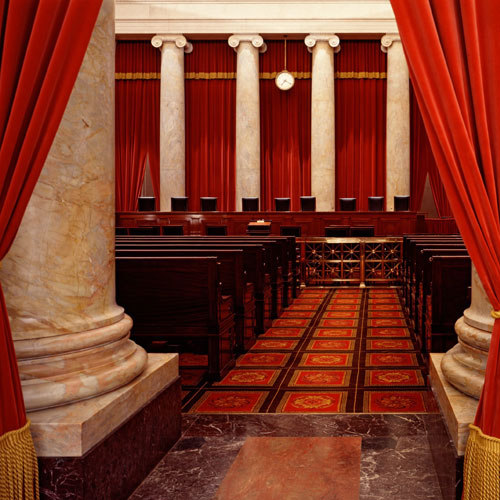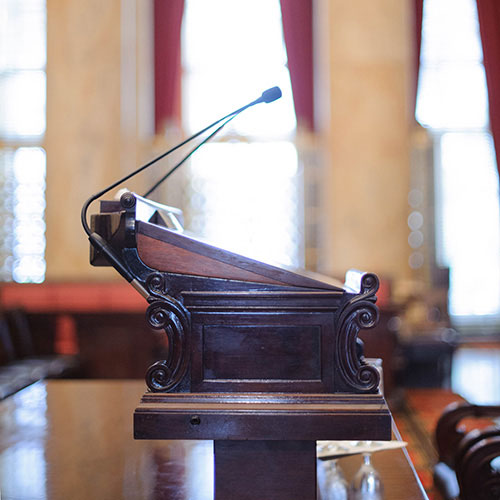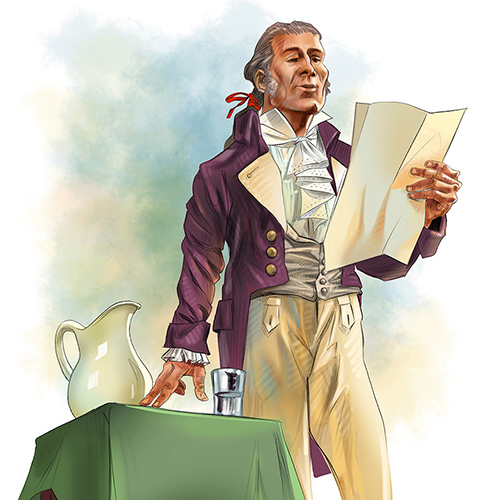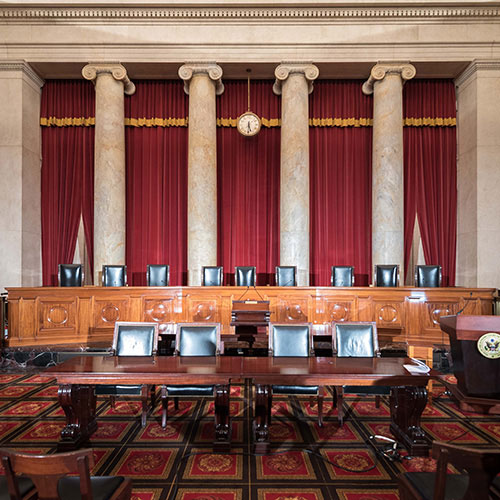View Event Online:
Original Event Information:
The Supreme Court Historical Society invites you to an informative program on the life and legacy of Chief Justice Oliver Ellsworth, the third Chief Justice of the United States, presented by William R. Casto, a renowned expert on Ellsworth’s life and contributions.
 OLIVER ELLSWORTH was born on April 29, 1745, in Windsor, Connecticut. Ellsworth attended Yale College until the end of his sophomore year and then transferred to the College of New Jersey (now Princeton University), where he graduated in 1766. He studied law in a law office for four years and was admitted to the bar in 1771. Ellsworth was a member of the Connecticut General Assembly from 1773 to 1776. From 1777 to 1784, he served as a delegate to the Continental Congress and worked on many of its committees. After service on the Connecticut Council of Safety and the Governor’s Council, he became a Judge of the Superior Court of Connecticut in 1785. As a delegate to the Federal Constitutional Convention in Philadelphia in 1787, Ellsworth helped formulate the “Connecticut Compromise,” which resolved a critical debate between the large and small states over representation in Congress. Ellsworth was elected to the First Federal Congress as a Senator. There he chaired the committee that drafted the Judiciary Act of 1789, which established the federal court system. On March 3, 1796, President George Washington nominated Ellsworth Chief Justice of the United States, and the Senate confirmed the appointment the following day. He resigned from the Supreme Court on December 15, 1800. Ellsworth died on November 26, 1807, at the age of sixty-two.
OLIVER ELLSWORTH was born on April 29, 1745, in Windsor, Connecticut. Ellsworth attended Yale College until the end of his sophomore year and then transferred to the College of New Jersey (now Princeton University), where he graduated in 1766. He studied law in a law office for four years and was admitted to the bar in 1771. Ellsworth was a member of the Connecticut General Assembly from 1773 to 1776. From 1777 to 1784, he served as a delegate to the Continental Congress and worked on many of its committees. After service on the Connecticut Council of Safety and the Governor’s Council, he became a Judge of the Superior Court of Connecticut in 1785. As a delegate to the Federal Constitutional Convention in Philadelphia in 1787, Ellsworth helped formulate the “Connecticut Compromise,” which resolved a critical debate between the large and small states over representation in Congress. Ellsworth was elected to the First Federal Congress as a Senator. There he chaired the committee that drafted the Judiciary Act of 1789, which established the federal court system. On March 3, 1796, President George Washington nominated Ellsworth Chief Justice of the United States, and the Senate confirmed the appointment the following day. He resigned from the Supreme Court on December 15, 1800. Ellsworth died on November 26, 1807, at the age of sixty-two. William R. Casto is the Paul Whitfield Horn Distinguished Professor, 1983 at Texas Tech University School of Law. Professor Casto received his law degree from the University of Tennessee-Knoxville and a Doctor of the Science of Law degree from Columbia University. He joined the Texas Tech faculty in 1983 after practicing law for several years. He has written a number of well-received books and articles on international tort law and the federal courts. The Supreme Court of the United States has frequently cited or relied upon his published scholarship. He is a member of the American Law Institute and holds a Paul Whitfield Horn Distinguished Professorship, which is the highest honor that Texas Tech bestows on a faculty member.
William R. Casto is the Paul Whitfield Horn Distinguished Professor, 1983 at Texas Tech University School of Law. Professor Casto received his law degree from the University of Tennessee-Knoxville and a Doctor of the Science of Law degree from Columbia University. He joined the Texas Tech faculty in 1983 after practicing law for several years. He has written a number of well-received books and articles on international tort law and the federal courts. The Supreme Court of the United States has frequently cited or relied upon his published scholarship. He is a member of the American Law Institute and holds a Paul Whitfield Horn Distinguished Professorship, which is the highest honor that Texas Tech bestows on a faculty member.His Books include The Supreme Court in the Early Republic, Oliver Ellsworth and the Creation of the Federal Republic, and Foreign Affairs and the Constitution in the Age of Fighting Sail. Professor Casto has written articles on judicial review, foreign policy, and the relationship between religion and public life in the Founding Era.
Registration for the event is closed.




